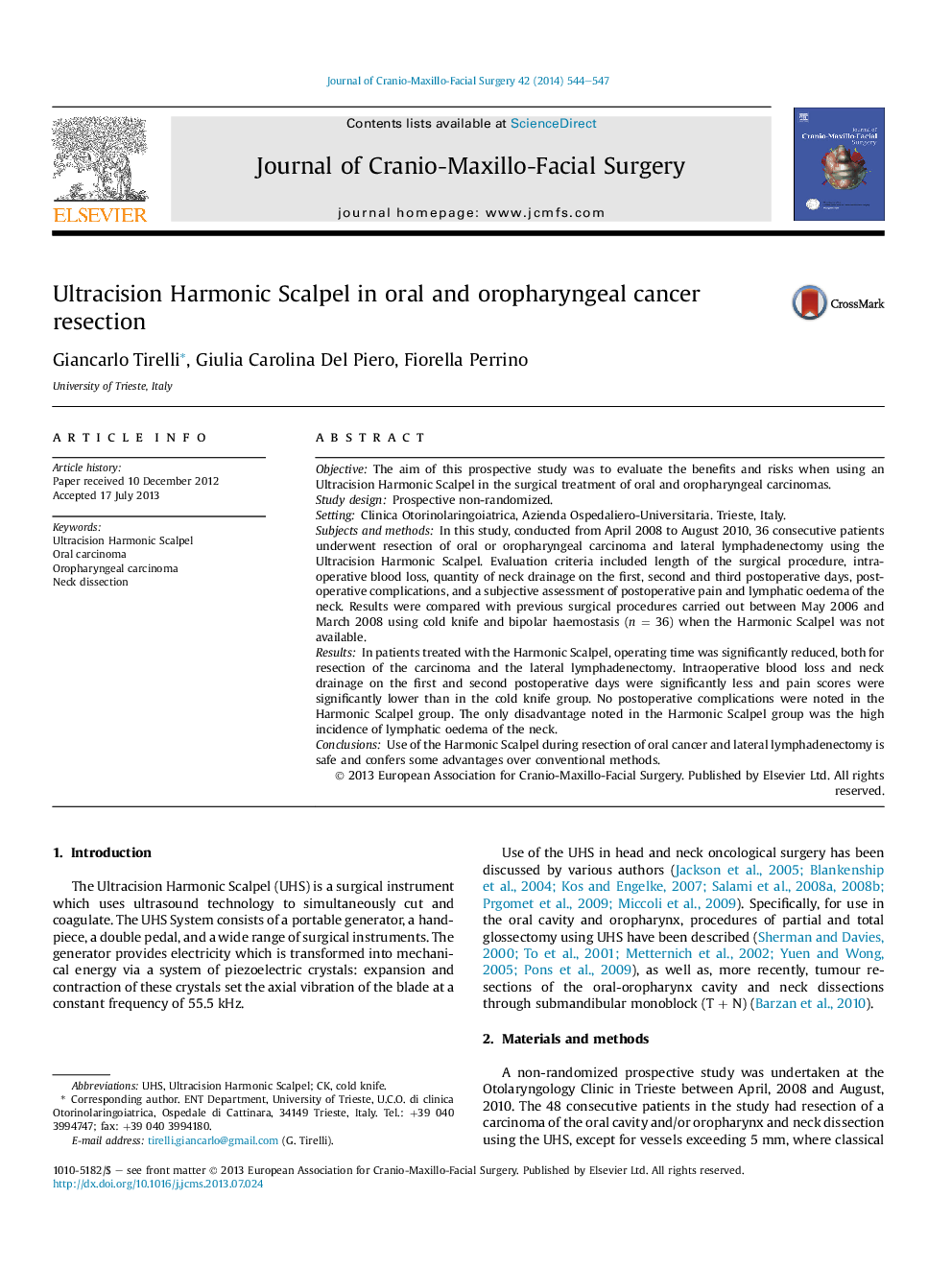| Article ID | Journal | Published Year | Pages | File Type |
|---|---|---|---|---|
| 3142581 | Journal of Cranio-Maxillofacial Surgery | 2014 | 4 Pages |
ObjectiveThe aim of this prospective study was to evaluate the benefits and risks when using an Ultracision Harmonic Scalpel in the surgical treatment of oral and oropharyngeal carcinomas.Study designProspective non-randomized.SettingClinica Otorinolaringoiatrica, Azienda Ospedaliero-Universitaria. Trieste, Italy.Subjects and methodsIn this study, conducted from April 2008 to August 2010, 36 consecutive patients underwent resection of oral or oropharyngeal carcinoma and lateral lymphadenectomy using the Ultracision Harmonic Scalpel. Evaluation criteria included length of the surgical procedure, intraoperative blood loss, quantity of neck drainage on the first, second and third postoperative days, postoperative complications, and a subjective assessment of postoperative pain and lymphatic oedema of the neck. Results were compared with previous surgical procedures carried out between May 2006 and March 2008 using cold knife and bipolar haemostasis (n = 36) when the Harmonic Scalpel was not available.ResultsIn patients treated with the Harmonic Scalpel, operating time was significantly reduced, both for resection of the carcinoma and the lateral lymphadenectomy. Intraoperative blood loss and neck drainage on the first and second postoperative days were significantly less and pain scores were significantly lower than in the cold knife group. No postoperative complications were noted in the Harmonic Scalpel group. The only disadvantage noted in the Harmonic Scalpel group was the high incidence of lymphatic oedema of the neck.ConclusionsUse of the Harmonic Scalpel during resection of oral cancer and lateral lymphadenectomy is safe and confers some advantages over conventional methods.
